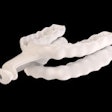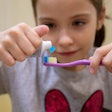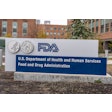The U.S. Food and Drug Administration (FDA) has issued a draft guidance aimed at fostering early-stage development of medical devices within the U.S.
The guidance document contains new approaches to early feasibility studies, which are conducted in a small number of patients early in device development, while providing appropriate human subject protections. Such studies are necessary to resolve final design issues before the device is ready for a large clinical trial that is typically required for product approval, the agency noted.
The draft guidance clarifies the FDA's process for approving clinical trials of medical devices and includes the following:
When the FDA might allow patients to enroll in a study while issues are resolved, an approach called "approval with conditions." Appropriate issues might include data analysis methods that can be resolved prior to gathering the data or minor divergences from study endpoints or study design assumptions.
When the FDA might allow studies to begin with a smaller group of subjects while companies gather additional data, prior to the larger general enrollment, an approach called "staged approval."
The FDA also issued guidance regarding clinical trials and medical devices that describes the agency's process for approving applications from companies that want to conduct clinical trials involving medical devices. It applies to medical devices in the early stages of development to better inform the final design of the device. It would allow studies to start earlier in the device development process than previously allowed. It would also permit for select device modifications to be made without FDA approval.


















